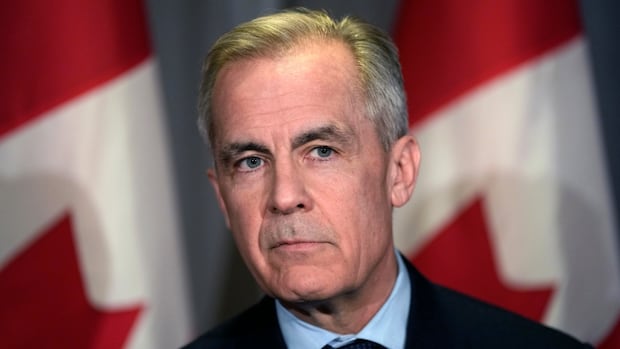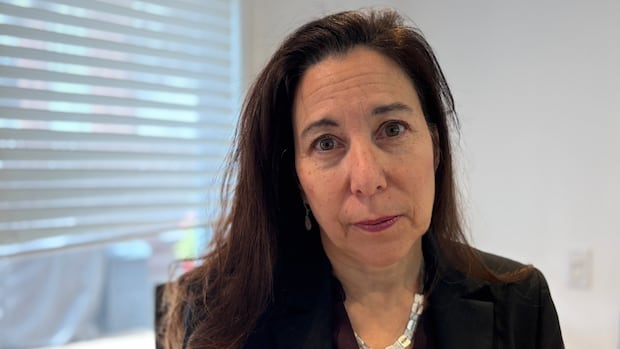Monica Forrester remembers her friend, Chevranna Abdi, as someone well known to step up to help other trans women, and who was outgoing and fun to be around.
The two met in Toronto in the 1990s, part of a close-knit community of transgender women who cared for each other in ways their biological families were often unwilling to do.
With Monday marking the International Transgender Day of Visibility, held every March 31 to honour transgender people and raise awareness of the discrimination they've faced, Forrester is among those remembering and honouring Abdi, who died in 2003.
"She was a great person," Forrester said in a recent interview with CBC Hamilton. "She was very beautiful, very beautiful physically, but you know, internally. She was a person that helped a lot of people over the years; helped a lot of trans women."
I want Chevranna's story to be understood and remembered as one of courage, one of strength and one of bravery.- Jelena Vermilion, Sex Workers Action Program HamiltonForrester said Abdi grew up in Hamilton and came from a Somali background, and had family members who were not accepting of her trans identity, although she was still close with one of her sisters. She sought out chosen family from within the trans community in Toronto, where she and Forrester both did street-based sex work.
"She gave her heart on her sleeve," said Forrester.
Abdi died after Hamilton police were called to a Sandford Avenue apartment building with reports of a woman "wielding a knife and acting in a bizarre fashion." The coroner's inquest said she died from "gastric aspiration from cocaine poisoning" after being carried down several flights of stairs by officers, and did not make any recommendations to police.
However, a Hamilton Spectator article from the inquest quotes witnesses who testified that fatigued officers dragged Abdi partway down the stairs, letting go of her legs while still supporting her upper body, face down. They also said a fellow resident had already seized the knife from her before police arrived.
In an email to CBC Hamilton this month, Hamilton Police Service spokesperson Jackie Penman emphasized the inquest found no evidence police actions played a role in Abdi's death.
"Any suggestion otherwise is misleading and irresponsible," she said.
Abdi was around 27 years old at the time.
Abdi 'a staple in the community'Forrester and others want Abdi to be remembered in a different light than how she was portrayed back then, when coverage used stigmatizing language about her lifestyle and identity. Forrester said it's never too late to share more about her humanity and add to the record.
"She was a staple in the community," Forrester said. "She was a presence; she helped and supported many people."
It's likely that her friend was using drugs, said Forrester. "But it didn't take away from the person she was."
Jelena Vermilion, executive director of Sex Workers Action Program Hamilton, learned about Abdi's story from the book Policing Black Lives by Robin Maynard.
Vermilion searched for more information in old newspapers and through speaking with people who knew Abdi, and was shocked by the language that was used to describe Abdi.
"The way that she was written about in the past was disgusting [and] dehumanizing," said Vermilion, who is trans. "Her story struck me because it could be any of us, and I think it could be me and it could be other trans women, and I just see how members of my community are disposed of, and dismissed and dehumanized, and her story breaks my heart."
Vermilion would like to see the case reopened.
"I want Chevranna's story to be understood and remembered as one of courage, one of strength and one of bravery," who had reached out to CBC about Abdi, sharing her research and past newspaper coverage.
Vermilion learned from Abdi's friends that she was fun loving and an inspiration to other trans women who were afraid to start transitioning. "She deserved so much more than this world gave her."
Racialized trans people particularly marginalized: advocatesCole Gately has been active in Hamilton's 2SLGBTQ+ community since the 1990s, and has been working to document and share stories of the city's queer and trans individuals through his stewardship of the Michael Johnstone 2SLGBTQ+ Community Archive at Hamilton Public Library.
Gately's friend, Michael Johnstone, started the collection by exhaustively saving newspaper articles that were donated to the library shortly before his death in 2018.
"At the moment, we're dealing with the idea that 'trans' is a brand new thing that's trying to, you know, corrupt the youth, which is not true," he told CBC, noting the importance of stories from the past to put our current circumstances into context. "We've been around since the dawn of humanity."
Gately said he doesn't recall much community reaction to Abdi's death at the time, which he sees as evidence of just how marginalized trans people — and especially racialized trans people — were, even within queer circles.
Kojo Damptey, a Hamilton anti-racism advocate, said Abdi's story "speaks to the disposability of Black people" and echoes the stories of other Black Hamiltonians who died after interactions with the police — they include Erixon Kabera, who police shot and killed in November.
"So many of us are saying, 'Hey, look, why is it that every time police interact with Black people, it ends up with some death or some form of violence? That is the story of Chevranna Abdi and other Black community members that have lost their lives.
"The majority of our population do not even know her story, and there are many others too."
For more stories about the experiences of Black Canadians — from anti-Black racism to success stories within the Black community — check out Being Black in Canada, a CBC project Black Canadians can be proud of. You can read more stories here.
 (CBC)
(CBC) 












